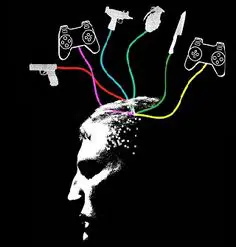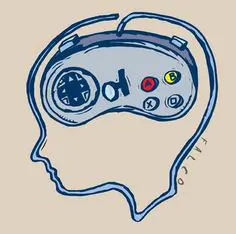
Healing from Within: Effective Treatment Approaches for Gaming Addiction
- Admin
Gaming addiction, recognized as a significant mental health concern, requires comprehensive treatment to address its underlying causes and symptoms effectively. In this article, we will delve into various treatment approaches tailored to help individuals overcome gaming addiction and regain control of their lives.
1. Cognitive-Behavioral Therapy (CBT):
CBT is a widely used therapeutic approach for treating gaming addiction. It focuses on identifying and modifying unhealthy thoughts and behaviors related to gaming, as well as developing coping strategies to manage cravings and triggers. By challenging distorted beliefs and learning new behavioral patterns, individuals can gradually reduce their gaming behavior and improve their overall well-being.
2. Mindfulness-Based Interventions:
Mindfulness-based interventions, such as mindfulness-based cognitive therapy (MBCT) and mindfulness-based stress reduction (MBSR), can be effective in treating gaming addiction. These approaches help individuals cultivate present-moment awareness, develop self-compassion, and learn to cope with cravings and negative emotions without resorting to gaming.
3. Family Therapy:
Involving family members in the treatment process can be beneficial for individuals with gaming addiction, as family dynamics and relationships often play a significant role in the development and maintenance of addictive behaviors. Family therapy provides a supportive environment for addressing family conflicts, improving communication skills, and fostering understanding and empathy among family members.
4. Group Therapy and Support Groups:
Group therapy and support groups offer individuals struggling with gaming addiction the opportunity to connect with others facing similar challenges. These settings provide a sense of camaraderie, validation, and accountability, as well as opportunities for sharing experiences, learning from peers, and practicing social skills in a supportive environment.
5. Pharmacotherapy:
While there are currently no medications specifically approved for treating gaming addiction, certain medications may be prescribed to manage co-occurring mental health conditions, such as depression, anxiety, or attention-deficit/hyperactivity disorder (ADHD), which commonly coexist with gaming addiction. However, medication should be used as part of a comprehensive treatment plan under the guidance of a qualified healthcare professional.
6. Lifestyle Changes and Healthy Habits:
Encouraging individuals to make lifestyle changes and adopt healthy habits is an essential component of gaming addiction treatment. This may include promoting physical exercise, adequate sleep, balanced nutrition, and engaging in meaningful activities and hobbies outside of gaming to restore balance and fulfillment in life.
7. Relapse Prevention Strategies:
Developing relapse prevention strategies is crucial for maintaining long-term recovery from gaming addiction. These strategies may involve identifying triggers, developing coping skills, creating a support network, setting realistic goals, and practicing self-care to minimize the risk of relapse and sustain progress towards recovery.
Conclusion:
Effective treatment for gaming addiction involves a multifaceted approach that addresses the underlying psychological, social, and behavioral factors contributing to the addiction. By combining evidence-based therapies, family involvement, peer support, lifestyle changes, and relapse prevention strategies, individuals can overcome gaming addiction and embark on a path towards a healthier and more fulfilling life. If you or someone you know is struggling with gaming addiction, seeking professional help and support is the first step towards healing and recovery.
